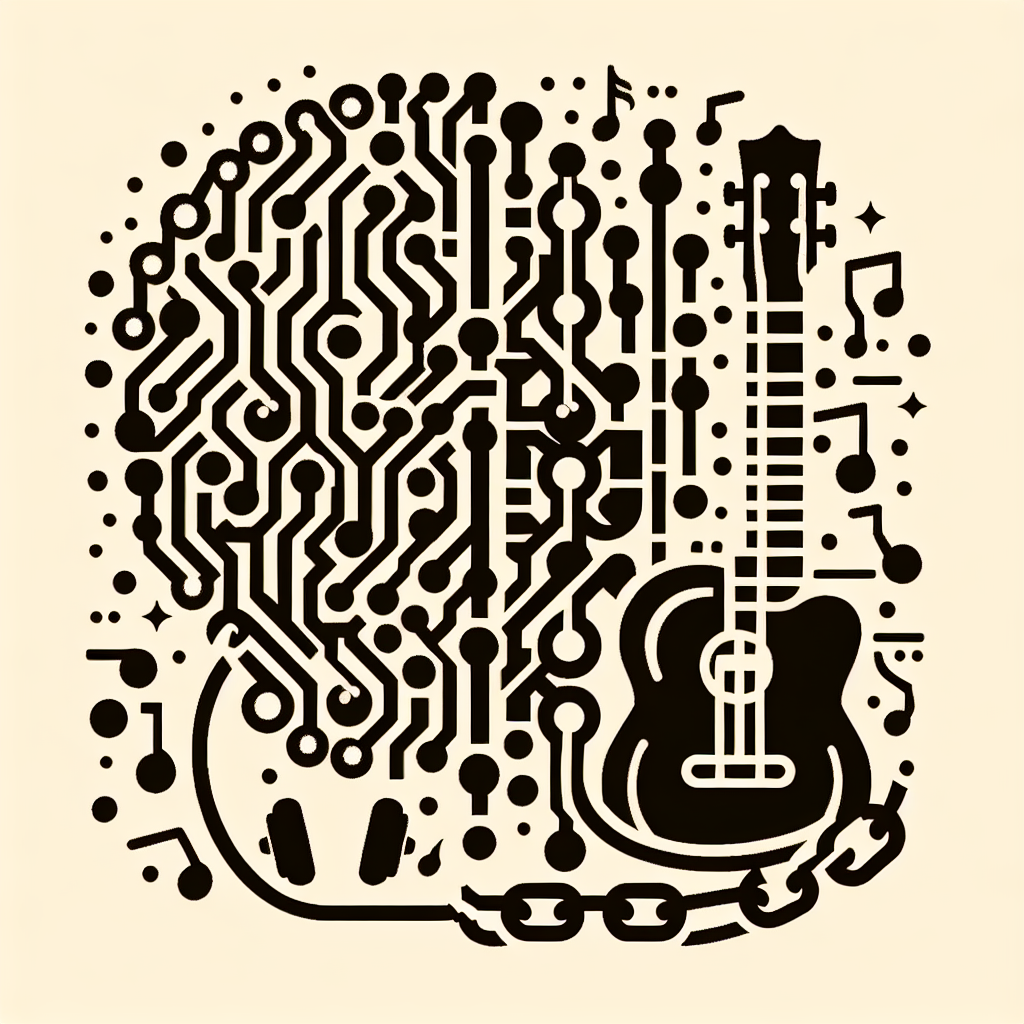In recent years, artificial intelligence (AI) has become an increasingly important tool in the music industry, particularly in the areas of music licensing and copyright. AI technology has the ability to streamline processes, improve accuracy, and increase efficiency in these crucial areas, making it an essential tool for music professionals and organizations.
The Role of AI in Music Licensing
Music licensing is a complex process that involves obtaining the rights to use copyrighted music for various purposes, such as in films, TV shows, commercials, and live performances. AI technology has revolutionized the way music licensing is done by providing faster and more accurate methods for identifying and clearing the rights to use music.
One of the key ways AI is used in music licensing is through content identification and matching. AI algorithms can analyze audio files and compare them to a vast database of copyrighted music to determine if the music has been used without permission. This helps music licensing organizations and rights holders to identify and take action against unauthorized use of their music.
AI technology can also help streamline the licensing process by automating tasks such as contract management, royalty calculations, and payment processing. By using AI-powered systems, music professionals can save time and resources, allowing them to focus on creating and promoting music.
Another way AI is being used in music licensing is through predictive analytics. AI algorithms can analyze data trends and patterns to predict which songs are likely to be popular in the future, helping music professionals make informed decisions about licensing and promoting music.
Overall, AI technology has transformed the music licensing process by providing faster, more accurate, and more efficient methods for identifying, clearing, and managing the rights to use music. As the music industry continues to evolve, AI will play an increasingly important role in ensuring that music professionals and organizations can access and use music in a fair and legal manner.
The Role of AI in Copyright Protection
Copyright protection is a critical issue for musicians, songwriters, and other music professionals, as it ensures that they receive fair compensation for their creative work. AI technology has become a valuable tool in helping to protect copyright in the music industry by detecting and preventing unauthorized use of copyrighted music.
One of the ways AI is used in copyright protection is through content recognition and monitoring. AI algorithms can analyze audio and video files to identify copyrighted music and detect instances of unauthorized use. This helps rights holders to monitor and enforce their copyright, preventing infringement and ensuring that they receive proper compensation for their work.
AI technology can also help detect plagiarism and copyright infringement by comparing music compositions and lyrics to a database of copyrighted works. This helps rights holders to identify unauthorized copies or adaptations of their music and take appropriate legal action to protect their rights.
In addition, AI-powered systems can help music professionals manage their copyright by tracking and registering their works, monitoring usage and royalties, and enforcing their rights through legal means. By using AI technology, music professionals can ensure that their creative work is protected and that they receive fair compensation for their efforts.
Overall, AI technology has become an essential tool in protecting copyright in the music industry by detecting and preventing unauthorized use of copyrighted music, identifying plagiarism and infringement, and helping music professionals manage and enforce their rights. As the music industry continues to grapple with issues of copyright protection, AI will play a crucial role in ensuring that creators can protect and monetize their creative work.
FAQs about AI in Music Licensing and Copyright
Q: How does AI technology help in identifying and clearing the rights to use music?
A: AI algorithms can analyze audio files and compare them to a vast database of copyrighted music to determine if the music has been used without permission. This helps music licensing organizations and rights holders to identify and take action against unauthorized use of their music.
Q: How can AI technology streamline the music licensing process?
A: AI technology can automate tasks such as contract management, royalty calculations, and payment processing, saving time and resources for music professionals and organizations.
Q: How does AI technology help in protecting copyright in the music industry?
A: AI algorithms can analyze audio and video files to identify copyrighted music and detect instances of unauthorized use, helping rights holders to monitor and enforce their copyright.
Q: How can AI technology help music professionals manage their copyright?
A: AI-powered systems can help music professionals track and register their works, monitor usage and royalties, and enforce their rights through legal means, ensuring that their creative work is protected and that they receive fair compensation for their efforts.
In conclusion, AI technology has become an essential tool in the music industry for music licensing and copyright protection. By providing faster, more accurate, and more efficient methods for identifying, clearing, and managing the rights to use music, AI technology helps music professionals and organizations navigate the complex landscape of music licensing and copyright. As the music industry continues to evolve, AI will play an increasingly important role in ensuring that creators can protect and monetize their creative work in a fair and legal manner.

